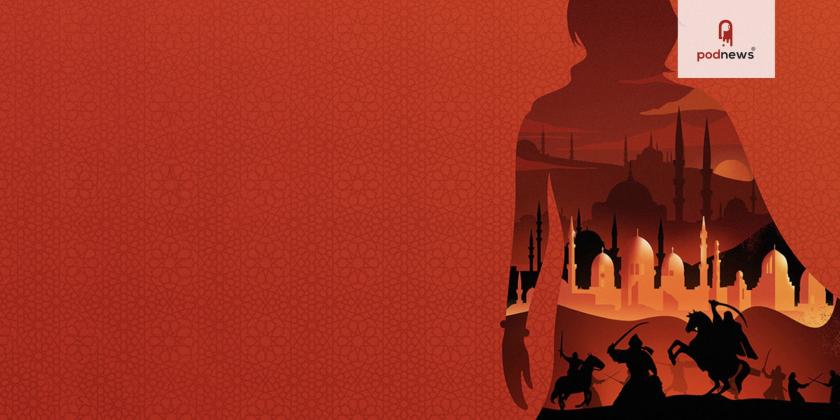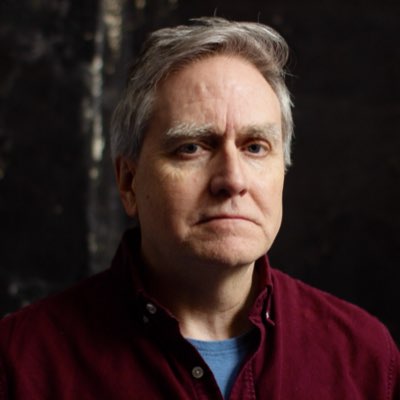
Do we know how to monetise limited-run audio series?

This article is at least a year old
John Scott Dryden is Director and Executive Producer, Goldhawk Productions
Audio drama offers unparalleled opportunity for creativity and experimentation. What many used to think of as old-fashioned “plays for the ear,” has become an explosive medium experiencing significant growth and technological innovation. The dawn of podcasting took commissioning out of the hands of broadcasters – the gatekeepers of perceived taste and quality – and opened it up to creators with other influences and new approaches who had previously been frozen out. This feels like the golden age of audio drama.
Goldhawk is audio to its core. We create experiences for listeners; the light, the smell, the touch, the world of the story inside the listeners’ heads, each seeing the characters and the settings in their own unique way. For us, it’s a “lean-in” experience, where creator and listener meet somewhere in the middle to conjure some kind of magic that is much more involving and goes much deeper than watching a TV show where the visuals are rigid and fixed.
So how are these shows funded? Certainly, it’s not an even playing field amongst different podcast genres. Instinctively, commissioners favour long-running “always on” chat show formats – they are the simplest shows to monetise with their ability to grow audiences over time and attract advertisers. Any limited run series - fiction or non-fiction – is competing at a disadvantage against such shows within the “free-to-download” advertiser-funded business model. But with so much content out there, the issue for such shows seems to be the dilution of available ad and sponsorship revenue across so many titles.
With that commissioning focus on “always on” chat shows, you might imagine that for the high-end, limited-run series, space is squeezed. But from our experience, that doesn’t seem to be so. We’ve never been busier, the business grows, the commissions get more sophisticated, and the production values are raised year on year and the demand for high quality storytelling not only in fiction but in documentary narrative has never been greater. Audiences’ expectations are rising, and they are demanding more.
So, bucking the chat show trend, how do we make this content pay? The first route is commissioning platforms and networks. We are fortunate enough to be trusted by the best commissioners across the world. Audible, alongside the BBC, has done some incredible work in developing audio fiction, bringing it to new audiences, and creating excitement around shows and others follow their lead. When podcasts first came into being people were asking what is the difference between a radio drama and a fiction podcast? I don’t think anyone has found a precise answer, but I do know that the experience of listening to a podcast is a deeply personal one that has found its way into everyday life, into all our daily routines.
Away from that traditional commissioning route, at Goldhawk we are experimenting with other funding models such as subscription channels – some of our recent content (such as Tagged for Sony, and The Sisters for Realm), does very well in that space and we have also made “branded” shows - a great example is General Electric’s funding of our thriller series LifeAfter. Beyond the shows having a technological theme, we had creative freedom, GE wanted no specific product placement, and the only branding was that the podcast feed was “GE Podcast Theatre.” It was a shrewd move on GE’s part, effortlessly putting the corporation in the public’s consciousness at a fraction of its marketing budget.
Discoverability is a big issue in podcasting. With more and more content out there, how do you find the good stuff? My prediction is that new “curated” services will emerge in this rapidly changing podcast landscape, and with this will come new opportunities to monetise. I believe there is a hunger for more meaningful content and since the earliest times, that is what Art has provided. Fiction podcasts are part of that. At their best, they have the ability to connect in a profound and life-affirming way. We experienced that with Passenger List and Tumanbay – two of our most enduring fiction podcasts, each with downloads of over ten million, each continuing to build audiences several years on from their first release and both optioned for TV.
We see ourselves as innovators in audio story-telling, a genre that stretches, inspires and ignites people’s imaginations. The world needs that now, more than ever.

































































































